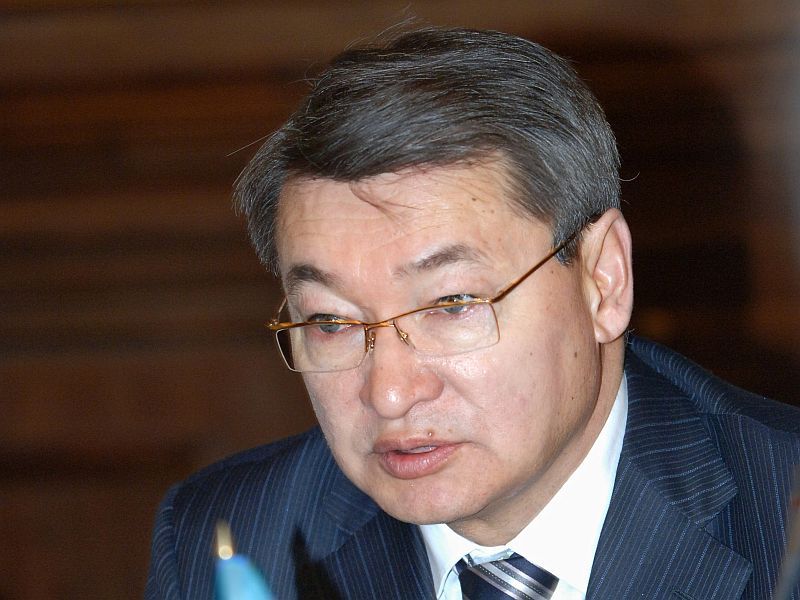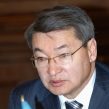
Kazakhstan Balances NATO and Pro-Russian Alliances
Publication: Eurasia Daily Monitor Volume: 6 Issue: 93
By:

On April 21 Kazakhstan’s Defense Minister Daniyal Akhmetov announced the country’s refusal to participate in the NATO military exercises in Georgia. Cooperative Longbow-Cooperative Lancer 2009 was scheduled for May 6 to June 1 in Georgia, originally involving forces from 18 nations. Akhmetov did not provide an explicit reason for the decision to withdraw from the military maneuvers, which might have strengthened Kazakhstan’s frequent claims about successfully developing its ties with NATO. "We are too busy for that" Akhmetov curtly said, while fielding questions from journalists (www.gazeta.ru, April 21).
The Defense Ministry’s ostentatious volte-face was unprecedented in its relations with NATO. Astana has never been so indifferent toward NATO military exercises since it joined the Partnership for Peace (PfP) program in May 1994. Kazakhstan became one of the most important partners of the Alliance within the former Soviet Union. Since 2003 NATO military aircraft have routinely used Kazakhstan’s air space on its missions into Afghanistan. The Kazakhstani government also authorized the use of its air fields for any emergency landings by NATO military aircraft. Although its partnership with NATO has intensified, this was a constant sore-point for Moscow. President Nursultan Nazarbayev effectively used his vaguely termed "multi-vector foreign policy" to zigzag with remarkable success between the Russian-dominated Collective Security Treaty Organization (CSTO) and the Shanghai Cooperation Organization (SCO) on the one hand and NATO on the other.
Officially, Kazakhstan’s refusal to take part in the NATO exercises in Georgia simply followed the example of Latvia and Estonia, which seemed to justify Kazakhstan’s cold shoulder to these maneuvers. But while the unenthusiastic attitude of some Baltic states to the exercises can be explained by financial considerations, the Kazakh military authorities were clearly cornered by the Kremlin’s vociferous protests against these exercises in Georgia -regarded by Moscow as a "provocative act" in the context of the Russian-Georgian war in August 2008. Even within Kazakhstan some analysts believed that the NATO exercises were intended to express Western solidarity with Mikheil Saakashvili’s weakened regime (Aikyn, April 17).
Apart from the political implications behind the Kazakh Defense Ministry’s decision to pull-out of the exercises on Georgian soil, Astana also had pragmatic reasons to avoid such open cooperation with NATO. Kazakhstan has made some efforts toward reforming its army, by adopting NATO standards in downsizing military personnel and placing more emphasis on sophisticated hardware, yet western assistance has remained insignificant. The peace- keeping battalion (KAZBAT), an element of which served in Iraq for five years conducting mine-clearing operations, returned home late last year without any combat experience.
The Kazakh military, as before its partnership with NATO, relies heavily on Russian equipment. This leaves Astana susceptible to political pressure from Moscow. Yielding to persistent demands from the Kremlin, Kazakhstan has now contributed its 37th airborne assault brigade, one of its elite units, into the CSTO Collective rapid reaction forces. Nonetheless, the Kazakh military authorities cannot be certain that they will get all they want from Moscow. In February, while addressing the military attaches of foreign embassies, Akhmetov boasted that Kazakh air defense forces would acquire the Russian S-300 and S-400 systems. Although he did not disclose the costs involved, it was then revealed that the preliminary contract with the Russians was concluded in May 2008. The purchase of these modern anti-aircraft installations designed to destroy unmanned aircraft and winged missiles at an altitude of up to 27 and 60 kilometers, was an indication of the deepening defense relations between the two countries.
Nevertheless, speaking recently at an air-base in the Zhambyl region, Akhmetov announced that the Kazakh air force will be reinforced with modified Russian SU-27, MiG-27 and MiG 23UB fighter jets. He added that these planes have been in service for at least 10 years within the Russian air force (Aikyn, May 7).
Kazakhstan has attempted to develop its own military industry to reduce its dependence on Russian hardware. However, a lack of qualified personnel and adequate technology has exposed serious challenges in implementing such ambitious projects. After repeated failures, Kazakhstan has produced only a few samples of military equipment, which however, cannot be considered entirely Kazakh. The Aibat grenade-launcher and Naiza anti-missile system mounted on Russian KamAz military trucks are only copies of foreign weaponry. At a recent cabinet meeting, Prime Minister Karim Masimov castigated the Trade and Industry Minister Vladimir Shkolnik and Defense Minister Akhmetov for failing to implement projects to develop the country’s military industry. Vladimir Shkolnik admitted that Kazakhstan does not even produce its own bullets, since the 2006 project to build an ammunition plant became bogged down in red tape and mismanagement (Aikyn, May 1).
Despite all the pro-Russian rhetoric, Astana cannot discount NATO’s importance for Kazakhstan’s integration into the international community and the impact of the eastern expansion of the Alliance. Kazakhstan might serve as a short-term buffer zone for NATO in the volatile Central region, neighboring with Afghanistan, and in the longer term as a bridge between Russia and China. In recent talks between Kazakh Foreign Minister Marat Tazhin and U.S. State Secretary Hillary Clinton, Kazakhstan’s non-participation in the NATO military exercises in Georgia was tactfully circumvented. But the time is nearing for Kazakhstan to break silence and clearly define its political and military priorities.




